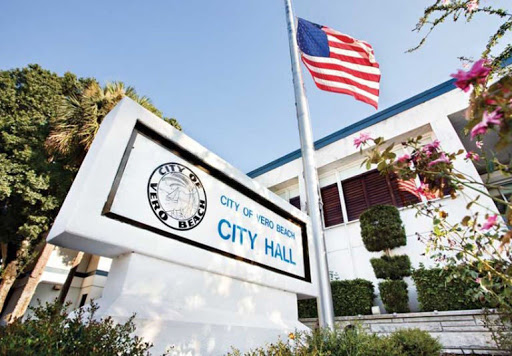A federal judge has shot down all of the City of Vero Beach’s arguments for a permanent water-sewer service territory, putting the Town of Indian River Shores one step closer to being able to obtain utility service from Indian River County or another provider.
Vero Beach had filed a motion to dismiss a lawsuit filed by the Shores which claims that a 1989 territorial agreement dividing Indian River County into two exclusive water-sewer service territories is a violation of federal antitrust law because it prevents the town from seeking competitive proposals for an essential service.
Federal Judge Aileen Cannon dismissed Vero’s motion, meaning the case will move forward toward a trial, which is set for January.
One by one, Cannon refuted each of Vero’s assertions justifying the permanent service territory, meaning that, to prevail at trial, Vero’s legal team will need to come up with a new rationale and strategy.
Vero claimed that, according to the 1989 agreement, Indian River County Utilities cannot serve Indian River Shores customers without Vero’s permission, and since Vero has not yet refused to grant that permission, the dispute is not yet ripe.
Cannon disagreed, noting that Indian River Shores is facing an Oct. 1, 2023, deadline to notify Vero whether or not the town intends to renew a water-sewer franchise agreement which expires in 2027, and the town needs time to plan for an alternative.
“The Court also finds that the Town has made a sufficient showing that withholding court consideration pending further action by the City will cause hardship” in light of the town’s 2023 deadline to make a decision, the ruling said.
Meanwhile, the City of Vero Beach is planning to build an $80 million-plus wastewater treatment plant at the airport, and to obtain financing for that major project with looming uncertainty about how large its customer base will be in 2027 should the city lose this lawsuit and Indian River County make a bid to provide the Shores with water-sewer service.
Regarding the argument that Section 180 of Florida Statutes grants municipalities the power to serve utility customers outside their own city limits, so actions under this “state power” are immune from federal antitrust law, Cannon countered that the State of Florida never intended for a municipality to use the authorization to provide water and sanitary sewer service to engage in “anticompetitive conduct,” wielding monopoly power over another municipality.
“Upon review, the Court agrees with the Town that state action immunity does not insulate the City from potential federal antitrust liability arising out of the 1989 Agreement as alleged in the Town’s well-pleaded complaint.
“Florida law authorizes municipalities to develop public utilities for water services, but that same source of law also limits a municipality from encroaching upon the boundary of another municipality in the development of such services,” the ruling said.
Vero also claimed that the decades Indian River Shores has spent as a customer of Vero Beach Utilities via two franchise agreements executed by town officials constitutes consent to the territorial agreement, but the judge disagreed.
Vero claims that the time the city has served the Shores has been without objection, but in reality, Indian River Shores has had issues with Vero’s utility rates for more than a decade, and Vero and the Shores have tried through formal mediation and informal negotiations to resolve their issues, resulting in not only the federal lawsuit, but also in a separate breach of contract lawsuit in state circuit court.
“The City has made no showing that such history precludes the Town from seeking legal redress now for what it has plausibly alleged is anticompetitive conduct in violation of federal antitrust law,” the judge wrote.
Shores Mayor Brian Foley said on Monday: “The federal court’s ruling agrees with the Town’s arguments on nearly all key legal issues. The court rejected the City of Vero Beach’s argument that the city’s anticompetitive conduct is immune from the antitrust laws. In so doing, the court order sets the stage for further proceedings to invalidate the so called ‘permanent exclusive service area’ claimed by the City of Vero Beach.”
Foley said the ruling denying Vero’s motion to dismiss the lawsuit, and the upcoming federal trial are important not just today, or in 2027 when the water-sewer franchise agreement expires.
“The town looks forward to seeing the case to conclusion so that future generations of Shores’ residents may freely choose who provides essential water services in the town,” Foley said.
Indian River Shores is being represented by Bruce May and Kevin Cox of the Holland and Knight law firm and the City of Vero Beach’s legal team includes Thomas Cloud of the GrayRobinson law firm and City Attorney John Turner.

